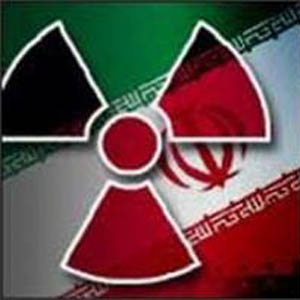The Iranian Nuclear File and the Oil Prices
Bearing in mind the fact that any conflict would push the oil prices to $200 to $300 a barrel, the chances of an attack before the U.S. elections in November is quite low

Last Thursday, the oil price reached its highest figure when it was traded at $145.85 per barrel. Oil prices have risen by almost 50 percent since the beginning of the year in January. It has fluctuated in the last couple of months mainly due to the following reasons:
1) Tight supplies and high demands. It has been expected that global oil supplies will not, in the long run, be able to deal with strong demand growth worldwide particularly from newly industrializing countries like India and China. Furthermore, a drop in U.S. domestic supplies has added to the already complex problem. It was reported that U.S. crude-oil supplies fell two million barrels last week.
2) Weak dollar. Oil has been priced in U.S. dollar. When the dollar is weak, the oil prices tend to go up and remain permanent as long as the U.S. dollar is not in a stable situation.
3) Possible supply disruption. Worries about disruption in supplies resulting from internal conflicts in oil producing countries, terrorist attacks and/or sanctions against oil producers, and wars have affected the turbulent oil prices.
IPS UN Journal has reported that according to some analysts based in Washington, the latter risk factor could account for as much as 50 dollars of the total current price, although most are of the opinion that the figure is about 25 dollars. Among different risk factors in the third category, the possibility of the start of a conflict as a result of the standoff on the Iranian nuclear issue has been considered as the main reason for the current oil price hike.
The talk of a military strike against Iranian nuclear installations by U.S. and Israel has been floating around for months. Recently, the Israeli officials have stepped up their rhetoric against Iran causing disturbances in the oil prices. Many oil analysts argue that the oil prices jumped 11 dollars when an Israeli minister warned last month that Israeli attack against Iran’s nuclear facilities was unavoidable.
In response to Israeli threats, the commander of Iran’s Revolutionary Guard Corps said recently that Iran would respond to any aggression against its territory. He went on to say that Iran would definitely act to impose control on the Persian Gulf and the Strait of Hormoz, causing very considerable rise in the oil price. A few days ago, the Iranian Oil Minister said that Iran would react fiercely if attacked, resulting in radically high oil prices.
The threat of war and subsequent retaliation as well as other recent events such as the news on the Israeli military exercises in the Mediterranean, which was said to be a signal to Tehran, the reported $400 million U.S. covert action program against Iran and numerous reports about the possibility of an Israeli attack against Iran between the U.S. presidential elections and the coming to office of the new U.S. president have been said to be responsible for the oil price increase to a historical level.
IPS Journal has also referred to Pew Research Center poll taken in June. According to this poll, three of four U.S. voters believe that gas prices will be very important in deciding who to vote for – a larger percentage than those who mentioned terrorism or the Iraq war.
Bearing in mind the fact that any conflict would push the oil prices to $200 to $300 a barrel, the chances of an attack before the U.S. elections in November is quite low. OPEC president said last week in Madrid that even if no attack occurs and in the absence of a dialogue between the two sides, the oil prices will reach to $170 a barrel in the coming weeks and months.
Under these circumstances, it is in the interests of all to lower the rhetoric and avoid any action that might increase the tension in the Middle East. Talks and negotiations aimed at arriving at a solution to the Iranian nuclear issue acceptable to both sides will not only spare the region from another unnecessary and unwarranted chaos, they will help people all across the globe to feel less pain at the pump.
Iran’s response to the 5+1 package, delivered to Solana on Friday, has opened the way for the start of the talks between the two sides. This trend should be encouraged and both sides should do their best to reach a successful conclusion to this problem.

